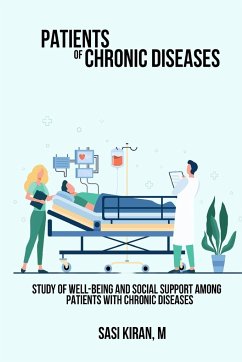ABSTRAC T Chronic diseases are characterized by their long duration and the absence of a permanent cure These diseases have to be managed by medication and lifestyle changes Some chronic diseases like cancer, AIDS, kidney failure are life threatening, while others like hypertension, diabetes, coronary disorders, asthma, arthritic and not. The patients suffering with such life long diseases need to make many adjustments in their life - in the family and outside. Sometimes, it involves the role of all family members They should learn to adapt to a new lifestyle that they may not find pleasant, and at the same time face the barriers that come while trying to adjust to the changed lifestyle The present study examined differences in well being and social support among patients with Arthntis, Coronary Heart Disease and Diabetes Mellitus. The study was conducted samples of 50 from each of the three disease groups. Scales to measure Well being {Bradley, 1990) and Social Support {Madhu, Veena and Sridhar, 2004) were administered The findings suggest that well-being of patients with chronic diseases is a function of the nature of the disease, years of education, duration of the disease and the gender of the patients The results regarding social support indicate that the patients' care providers (especially the spouse) have a positive attitude towards the disease, but feel the patient is sick and requires constant support. The majority of patients with chronic diseases seek the
Hinweis: Dieser Artikel kann nur an eine deutsche Lieferadresse ausgeliefert werden.
Hinweis: Dieser Artikel kann nur an eine deutsche Lieferadresse ausgeliefert werden.








